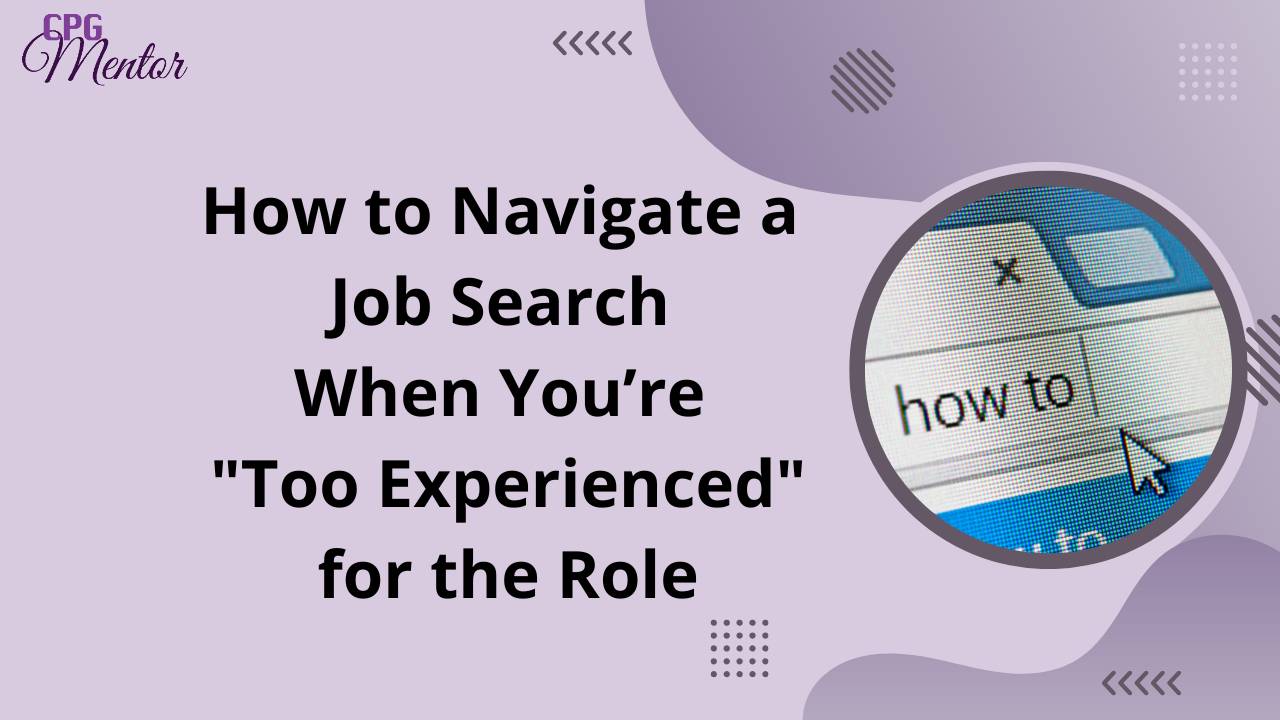How to Navigate a Job Search When You're "Too Experienced" for the Role

When You Hear "You're Overqualified" — What It Really Means
If you’ve ever been told, “You’re too corporate,” or “You’re too senior for this role,” you know how frustrating that feedback can be.
You may have the exact skills they need, but if your experience is seen as “too much” — it can feel like a wall between you and the opportunity.
But here’s the truth:
It’s rarely about your qualifications — it’s about how you’re telling your story.
The good news? You can reshape that story to show that you’re the solution they need — without downplaying your expertise.
What Hiring Managers Are Really Worried About
When companies say you’re “too experienced,” here’s what they often mean:
- "You won’t stay long — you’ll get bored."
- "You’ll expect a higher salary than we can pay."
- "You’ll struggle to adapt to our scrappy, fast-moving environment."
- "You’ll want to change everything instead of learning how we do things."
Understanding these concerns helps you address them head-on in interviews.
How to Shift the Conversation — 3 Powerful Reframes
1️⃣ Show How Your Experience Makes You Agile, Not Rigid
Instead of focusing on your years in big corporate roles, highlight your scrappiest, most resourceful experiences.
➡️ “I’ve worked in structured environments, but some of my favorite work has been when I’ve had to figure things out quickly with limited resources.”
➡️ “Here’s an example of a time I had to be scrappy and adapt fast.”
Focus on agility, not hierarchy.
2️⃣ Address Longevity and Motivation Directly
If they worry you’ll leave, show them why this role is exactly what you’re looking for.
➡️ “Here’s why this role aligns with what I want at this stage of my career.”
➡️ “I’m excited to roll up my sleeves and focus on execution — that’s what drew me to this opportunity.”
3️⃣ Reframe Salary Expectations Before They Ask
Don’t let them assume. Let them know you’re focused on fit over title or pay.
➡️ “For me, it’s really about the opportunity to contribute in a meaningful way. I’m confident we can find alignment on compensation if this is the right fit for both of us.”
A Real Story: How One Professional Reframed Her Value
One of my clients — a senior marketing leader — kept hearing she was "too corporate" for smaller companies.
Once we reworked her resume to highlight her problem-solving and hands-on work, and shifted her interview answers to focus on agility and collaboration, she landed a role with a company that originally told her she might be overqualified.
The difference?
➡️ She made it easy for them to see her as part of the team.
Your Action Plan: How to Handle "Too Experienced" Feedback
✅ Step 1: Identify your “scrappy” stories. Think of times you worked in fast-paced, ambiguous situations — and be ready to share them.
✅ Step 2: Clarify why this role fits you now. Know how to explain what motivates you — and why you’ll stay.
✅ Step 3: Reframe your value in interviews. Talk about how you’ll solve their problems, not just what you’ve done before.
Your Next Step
If you’ve been told you’re "too experienced" or "too corporate," it’s not the end — it’s an invitation to adjust your message.
Focus on what you can bring to their unique challenges — and show them that your experience is exactly what they need.
Want More Support in Telling Your Story?
Want more insights on reframing your value and landing the right role? Connect with me on LinkedIn and mention this blog in your invitation to get your free CPG Job Search Resources guide.
Explore more resources to support your job search success:
